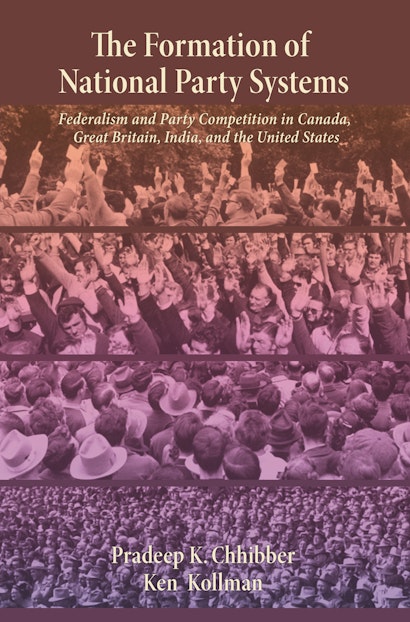The Formation of National Party Systems: Federalism and Party Competition in Canada, Great Britain, India, and the United States


Paperback
- Price:
- $53.00/£42.00
- ISBN:
- Published:
- Aug 15, 2004
- Copyright:
- 2004
- Pages:
- 272
- Size:
- 6 x 9.25 in.
ebook
Pradeep Chhibber and Ken Kollman rely on historical data spanning back to the eighteenth century from Canada, Great Britain, India, and the United States to revise our understanding of why a country’s party system consists of national or regional parties. They demonstrate that the party systems in these four countries have been shaped by the authority granted to different levels of government. Departing from the conventional focus on social divisions or electoral rules in determining whether a party system will consist of national or regional parties, they argue instead that national party systems emerge when economic and political power resides with the national government. Regional parties thrive when authority in a nation-state rests with provincial or state governments. The success of political parties therefore depends on which level of government voters credit for policy outcomes. National political parties win votes during periods when political and economic authority rests with the national government, and lose votes to regional and provincial parties when political or economic authority gravitates to lower levels of government.
This is the first book to establish a link between federalism and the formation of national or regional party systems in a comparative context. It places contemporary party politics in the four examined countries in historical and comparative perspectives, and provides a compelling account of long-term changes in these countries. For example, the authors discover a surprising level of voting for minor parties in the United States before the 1930s. This calls into question the widespread notion that the United States has always had a two-party system. In fact, only recently has the two-party system become predominant.
Awards and Recognition
- Winner of the 2005 Leon D. Epstein Outstanding Book Award, Division of Political Organizations and Parties of the American Political Science Association
- Runner-Up for the 2005 Gregory Luebbert Book Award, Comparative Politics Section of the American Political Science Association